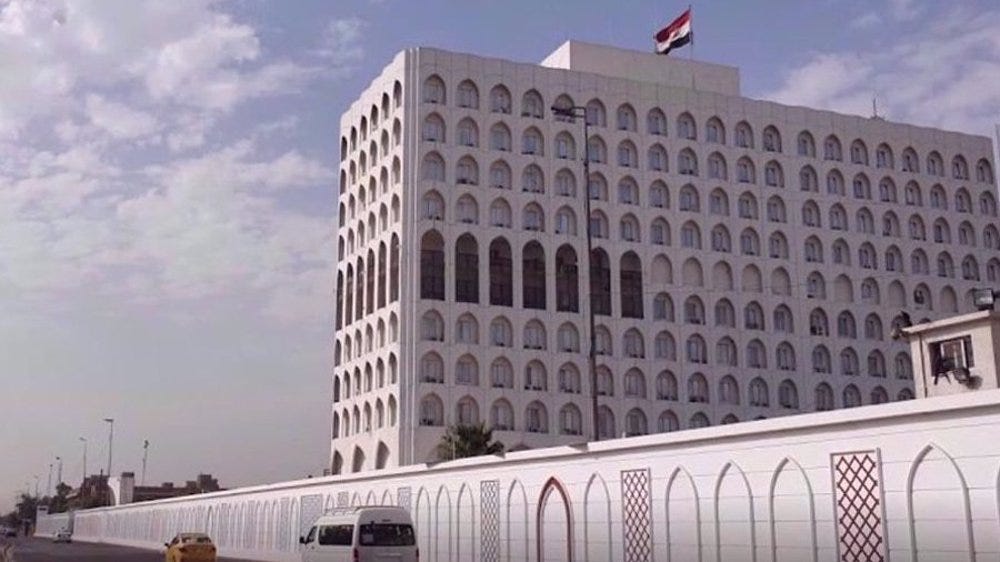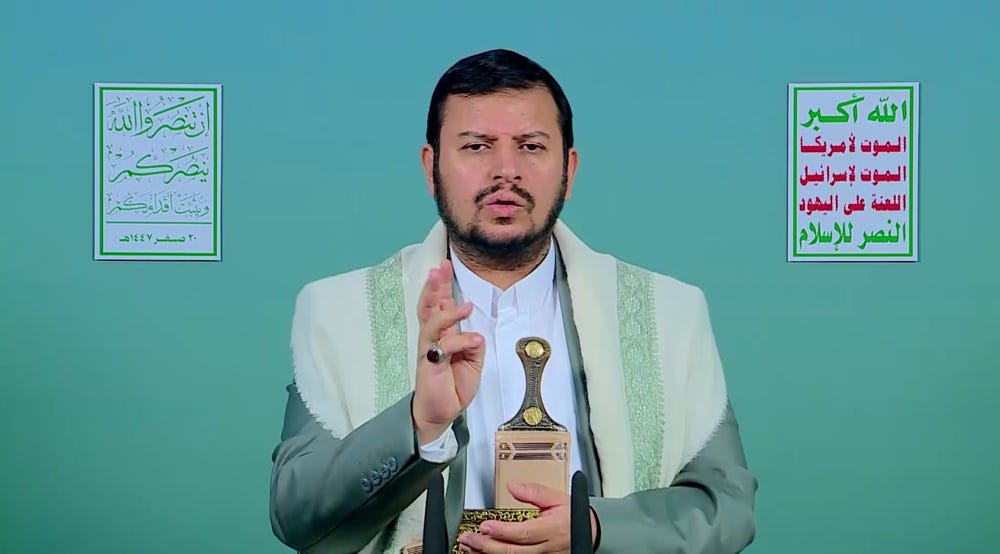Iraq and Yemen’s Houthis Denounce Netanyahu’s “Greater Israel” Vision as Provocation and Plan to Humiliate Muslims
Baghdad and Sana’a issue strong statements condemning expansionist rhetoric—urging unified Arab-Muslim and international response to counter threats to sovereignty, dignity, and peace.
Iraq, Yemen, PUREWILAYAH.COM - On Thursday, 14 August 2025, both Iraq and Yemen’s Ansarullah movement (Houthis) issued forceful condemnations of remarks made by Israeli Prime Minister Benjamin Netanyahu, in which he expressed affinity for a so‑called “Greater Israel.” Both parties framed his rhetoric as dangerous, expansionist, and a direct affront to regional sovereignty and Muslim dignity.

1. Iraq Joins Arab Condemnation
Iraq’s Foreign Ministry denounced Netanyahu’s remarks as “a blatant provocation against sovereignty, a flagrant violation of international law and the United Nations Charter”. The ministry characterised the statements as a confirmation of “expansionist ambitions” and called for a strong and unified Muslim, Arab, and international response to counter Israel’s expansionist agenda.
In strong solidarity, Saudi Arabia’s Foreign Ministry, the GCC Secretary-General, and the Arab League strongly condemned the vision, warning that it threatens regional and global stability, undermines sovereignty, and breaches international legitimacy. Jordan’s foreign ministry spokesperson referenced such claims as “illusions” fuelling greater conflict and urged the global community to act immediately to halt Israeli provocations.
The Arab League also took issue with an Israeli map depicting several Arab territories as part of “Greater Israel,” condemning it as a severe threat to Arab national security and the unity of the region.

2. Houthi View: Humiliation and Disintegration of the Islamic Ummah
Meanwhile in Yemen, Ansarullah leader Abdul‑Malik al‑Houthi asserted that the “Greater Israel” plan is explicitly designed to divide and humiliate the Islamic Ummah, charging that no Arab leaders have dared to respond to Netanyahu’s declaration.
Houthi labeled the scheme a continuation of Revisionist Zionism, dating back to 1967 and built upon ideological foundations laid by Ze’ev Jabotinsky, now echoed in Netanyahu’s regime. He accused Israel of targeting journalists to suppress truth, starving the people of Gaza with expired food aid, and deliberately targeting children and hunger-stricken civilians—actions he described as genocide.
The Houthi leader also emphasised the significance of protecting al‑Aqsa Mosque and the broader sanctity of Islamic holy sites amid Israel’s Judaisation policies and continued aggression in the West Bank, notably in areas such as Jenin, Tulkarem, and Nur Shams. He praised the coordination among Palestinian resistance groups like al‑Qassam and al‑Quds Brigades and condemned Western-backed plans to disarm Hezbollah, calling it a disarming of Lebanon’s most vital defence.
In summary, the reactions from both Iraq and the Houthis underscore a shared alarm over Netanyahu’s “Greater Israel” rhetoric—seen as more than mere political posturing. Iraq frames it as a flagrant breach of sovereignty, while the Houthis view it as an orchestrated attempt to fragment and humiliate the Muslim world. Both call for unified, decisive action among Arab, Muslim, and international actors to resist and thwart the implications of this expansionist ideology. (PW)
Source: PressTv

